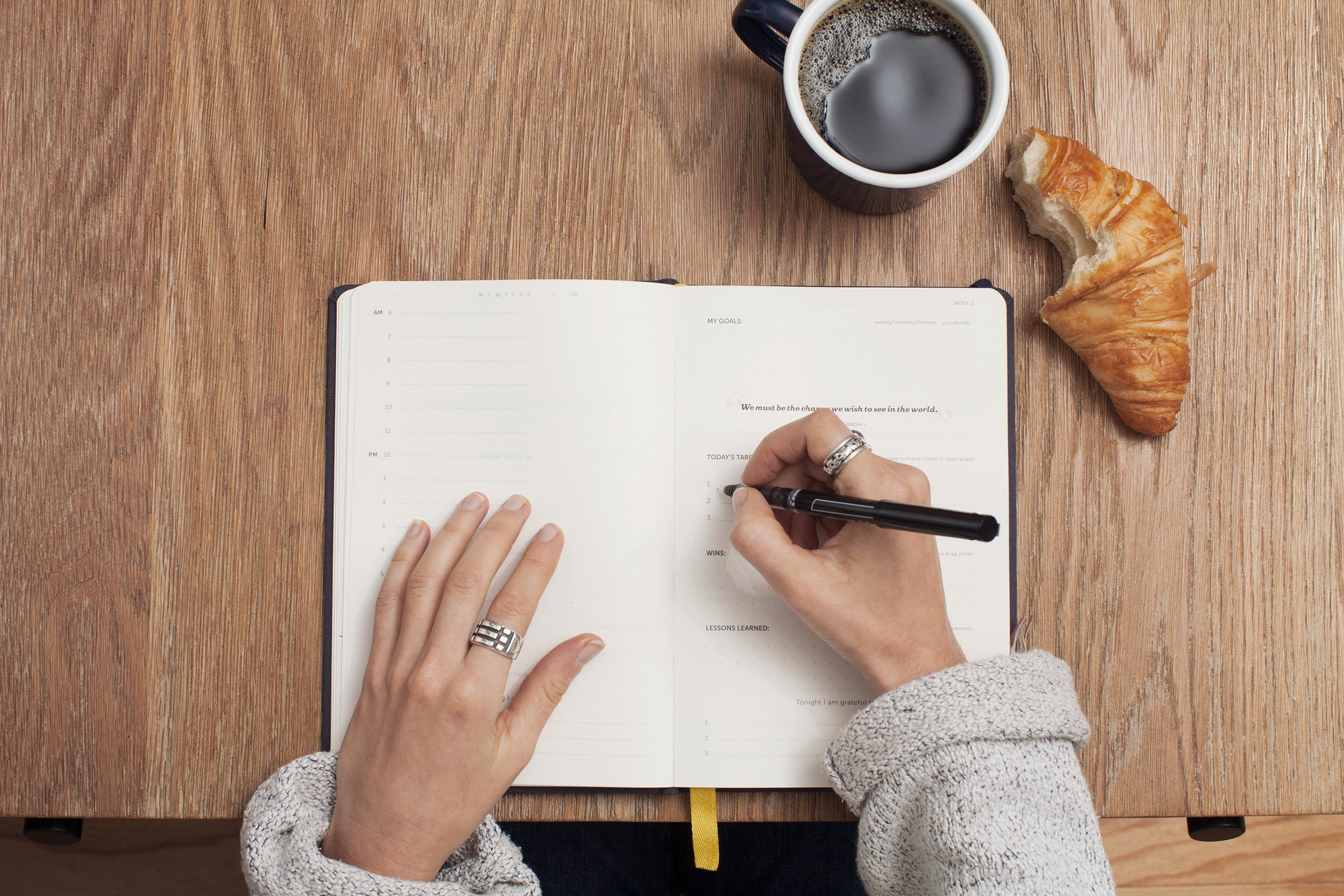Listen to this article
Productivity
The benefits of building routines


Productivity
The benefits of building routines


Productivity
The benefits of building routines



Summary
Having routines to follow may sound like the way to choke the fun out of a day - days then become predictable and there’s no opportunity for spontaneity.
The reality, however, can be quite different.
With a routine in place to get through some of the daily tasks of living, more time will then be available to do fun stuff. And crucially, you get to enjoy that time without the feeling that you should, really, be responding to some emails.
Predictability is also not a bad thing - some structure to the day reduces the uncertainty about what we should be doing and helps get through tasks in regular, and therefore more manageable, steps.
This article gives a quick overview of the benefits that routines can have in two areas - your mental wellbeing and your productivity.
Summary
Having routines to follow may sound like the way to choke the fun out of a day - days then become predictable and there’s no opportunity for spontaneity.
The reality, however, can be quite different.
With a routine in place to get through some of the daily tasks of living, more time will then be available to do fun stuff. And crucially, you get to enjoy that time without the feeling that you should, really, be responding to some emails.
Predictability is also not a bad thing - some structure to the day reduces the uncertainty about what we should be doing and helps get through tasks in regular, and therefore more manageable, steps.
This article gives a quick overview of the benefits that routines can have in two areas - your mental wellbeing and your productivity.
Read this article
3m
Routines & Mental Wellbeing
We are all frequently advised that the key to improved mental wellbeing involves eating well, getting enough sleep and exercise, making time for friends and family, spending time outdoors and even making the bed every morning.
Knowing that these things can help our wellbeing is all well and good, but how do we actually go about incorporating these into our days in a way that sticks and that doesn't just last for a couple of days?
Adopting a routine is one way to help.
For example, think about how you start each day.
A lot of us might wake up when the alarm goes off, hit the snooze button a few times and then lie in bed for a bit too long looking at our phone. Getting ready then becomes a bit frantic, maybe meaning we have to skip breakfast or be late.
So instead, lets imagine having a specific morning routine to start the day positively. It might look something like this:
get up when your alarm goes off
do some stretches
make your bed
take a shower
have some breakfast
check what you need for the day ahead
By having this series of small steps to follow every time you wake up, what were previously tasks that you had to try to remember to do, become habits that you do as automatically as brushing your teeth. It may be that some bits (the stretching, let's be honest!) get dropped, but overall, a much healthier, less stressful and more productive start to the day can become a norm.
Routines & Productivity
To be productive, you need your brain to be focussed on the task that you’re doing. If you’re distracted by all the other things you need to do - life admin - you will be less productive. Building a routine to take care of all the other stuff means you can therefore be free from distractions and able to fully focus on what you need to get done.
So to create that routine, set aside 30 minutes each day for admin tasks. Then create a checklist of all the things that you may need to do:
check and reply to emails
pay bills
make appointments
make a shopping list
plan dinner
Some of these you won’t need to do every day, so you can just tick them off straightaway. Then, power through the rest in the time allocated - if you schedule 30 minutes a day, you’ll easily have enough time to keep on top of things. Then, the rest of the day is yours to do what you want, without any nagging distractions.
Read this article
3m
Routines & Mental Wellbeing
We are all frequently advised that the key to improved mental wellbeing involves eating well, getting enough sleep and exercise, making time for friends and family, spending time outdoors and even making the bed every morning.
Knowing that these things can help our wellbeing is all well and good, but how do we actually go about incorporating these into our days in a way that sticks and that doesn't just last for a couple of days?
Adopting a routine is one way to help.
For example, think about how you start each day.
A lot of us might wake up when the alarm goes off, hit the snooze button a few times and then lie in bed for a bit too long looking at our phone. Getting ready then becomes a bit frantic, maybe meaning we have to skip breakfast or be late.
So instead, lets imagine having a specific morning routine to start the day positively. It might look something like this:
get up when your alarm goes off
do some stretches
make your bed
take a shower
have some breakfast
check what you need for the day ahead
By having this series of small steps to follow every time you wake up, what were previously tasks that you had to try to remember to do, become habits that you do as automatically as brushing your teeth. It may be that some bits (the stretching, let's be honest!) get dropped, but overall, a much healthier, less stressful and more productive start to the day can become a norm.
Routines & Productivity
To be productive, you need your brain to be focussed on the task that you’re doing. If you’re distracted by all the other things you need to do - life admin - you will be less productive. Building a routine to take care of all the other stuff means you can therefore be free from distractions and able to fully focus on what you need to get done.
So to create that routine, set aside 30 minutes each day for admin tasks. Then create a checklist of all the things that you may need to do:
check and reply to emails
pay bills
make appointments
make a shopping list
plan dinner
Some of these you won’t need to do every day, so you can just tick them off straightaway. Then, power through the rest in the time allocated - if you schedule 30 minutes a day, you’ll easily have enough time to keep on top of things. Then, the rest of the day is yours to do what you want, without any nagging distractions.

Written by Tim Jones

Written by Tim Jones
0:00/1:34
Summary
Having routines to follow may sound like the way to choke the fun out of a day - days then become predictable and there’s no opportunity for spontaneity.
The reality, however, can be quite different.
With a routine in place to get through some of the daily tasks of living, more time will then be available to do fun stuff. And crucially, you get to enjoy that time without the feeling that you should, really, be responding to some emails.
Predictability is also not a bad thing - some structure to the day reduces the uncertainty about what we should be doing and helps get through tasks in regular, and therefore more manageable, steps.
This article gives a quick overview of the benefits that routines can have in two areas - your mental wellbeing and your productivity.
Read this article
Having routines to follow may sound like the way to choke the fun out of a day - days then become predictable and there’s no opportunity for spontaneity.
The reality, however, can be quite different.
With a routine in place to get through some of the daily tasks of living, more time will then be available to do fun stuff. And crucially, you get to enjoy that time without the feeling that you should, really, be responding to some emails.
Predictability is also not a bad thing - some structure to the day reduces the uncertainty about what we should be doing and helps get through tasks in regular, and therefore more manageable, steps.
This article gives a quick overview of the benefits that routines can have in two areas - your mental wellbeing and your productivity.
Routines & Mental Wellbeing
We are all frequently advised that the key to improved mental wellbeing involves eating well, getting enough sleep and exercise, making time for friends and family, spending time outdoors and even making the bed every morning.
Knowing that these things can help our wellbeing is all well and good, but how do we actually go about incorporating these into our days in a way that sticks and that doesn't just last for a couple of days?
Adopting a routine is one way to help.
For example, think about how you start each day.
A lot of us might wake up when the alarm goes off, hit the snooze button a few times and then lie in bed for a bit too long looking at our phone. Getting ready then becomes a bit frantic, maybe meaning we have to skip breakfast or be late.
So instead, lets imagine having a specific morning routine to start the day positively. It might look something like this:
get up when your alarm goes off
do some stretches
make your bed
take a shower
have some breakfast
check what you need for the day ahead
By having this series of small steps to follow every time you wake up, what were previously tasks that you had to try to remember to do, become habits that you do as automatically as brushing your teeth. It may be that some bits (the stretching, let's be honest!) get dropped, but overall, a much healthier, less stressful and more productive start to the day can become a norm.
Routines & Productivity
To be productive, you need your brain to be focussed on the task that you’re doing. If you’re distracted by all the other things you need to do - life admin - you will be less productive. Building a routine to take care of all the other stuff means you can therefore be free from distractions and able to fully focus on what you need to get done.
So to create that routine, set aside 30 minutes each day for admin tasks. Then create a checklist of all the things that you may need to do:
check and reply to emails
pay bills
make appointments
make a shopping list
plan dinner
Some of these you won’t need to do every day, so you can just tick them off straightaway. Then, power through the rest in the time allocated - if you schedule 30 minutes a day, you’ll easily have enough time to keep on top of things. Then, the rest of the day is yours to do what you want, without any nagging distractions.

Written by Tim Jones
Prior to co-founding Booost Education, Tim previously worked with neurodivergent and disabled students at various universities and trained as an assistive technology consultant with AbilityNet.

Written by Tim Jones
Prior to co-founding Booost Education, Tim previously worked with neurodivergent and disabled students at various universities and trained as an assistive technology consultant with AbilityNet.


